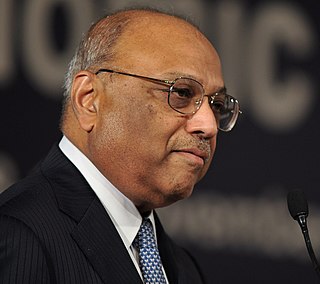A Quote by Ludwig von Mises
What vitiates entirely the socialists economic critique of capitalism is their failure to grasp the sovereignty of the consumers in the market economy.
Related Quotes
Capitalism means free enterprise, sovereignty of the consumers in economic matters, and sovereignty of the voters in political matters. Socialism means full government control of every sphere of the individuals life and the unrestricted supremacy of the government in its capacity as central board of production management.
In the course of history periods of capitalism and socialism alternate with one another; capitalism is the unnatural, socialism the natural economic system... The National Socialists and the Red Front have the same aspirations. The Jews falsified the Revolution in the form of Marxism and that failed to bring fulfilment.
Neoliberalism is going to fail by being replaced. The system is entirely broken. Whenever you have a system that equates a market economy with a market society and claims that capitalism is democracy, you've not only got a massive lie being imposed on the people, but you've got the foundation for a form of authoritarianism and a much more intensive form of class warfare.
The capitalistic social order, therefore, is an economic democracy in the strictest sense of the word. In the last analysis, all decisions are dependent on the will of the people as consumers. Thus, whenever there is a conflict between the consumers' views and those of the business managers, market pressures assure that the views of the consumers win out eventually.
If capitalism worked as the socialists think an economic system ought to work, and provided a constant equality of living conditions for all, regardless of whether a man was able or not, resourceful or not, diligent or not, thrifty or not, if capitalism put no premiums on resourcefulness and effort and not penalty on idleness or vice, it would produce only an equality of destitution.
We've now become conscious of the uncalculated social, economic, and environmental costs of that kind of "unconscious" capitalism. And many are beginning to practice a form of "conscious capitalism," which involves integrity and higher standards, and in which companies are responsible not just to shareholders, but also to employees, consumers, suppliers, and communities. Some call it "stakeholder capitalism."
The truth is that capitalism has not only multiplied population figures, but at the same time, improved the people's standard of living in an unprecedented way. Neither economic thinking nor historical experience suggests that any other social system could be as beneficial to the masses as capitalism. The results speak for themselves. The market economy needs no apologists and propagandists. It can apply to itself the words of Sir Christopher Wren's epitaph in St. Paul's: Si monumentum requires, circumspice.
Inequality of wealth and incomes is an essential feature of the market economy. It is the implement that makes the consumers supreme in giving them the power to force all those engaged in production to comply with their orders. It forces all those engaged in production to the utmost exertion in the service of the consumers. It makes competition work. He who best serves the consumers profits most and accumulates riches.
I think capitalism will not disappear, but it's going to increasingly not be the exclusive arbiter of economic life. It's going to have to find value in interacting with the sharing economy on many levels. And this hybrid system that's already emerging among millennials is going to be a mature system where, by midcentury, part of the day will be in the capitalist market, part of the day in the sharing economy, depending on your marginal costs.






























